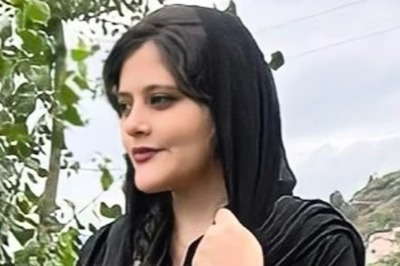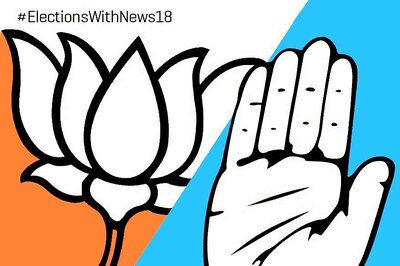
views
Washington: The United States is close to deciding on whether to label the Pakistan-based Haqqani network as a foreign terrorist group, US Secretary of State Hillary Clinton said on Wednesday amid calls for a tougher stance on militants accused of series of high-profile attacks.
"We are in the final, formal review that has to be undertaken to make a government-wide decision to designate the network as a foreign terrorist organization," Clinton told reporters in an appearance with Egypt's visiting foreign minister.
Clinton, noting that the United States had already placed a number of individual leaders of the Haqqani network on its terrorism blacklist, said the United States would work with Pakistan to put pressure on such groups.
"We're going to continue to struggle against terrorism and in particular against those who have taken up safe havens inside Pakistan, and we're going to continue to work with our Pakistani counterparts to try and root them out," she said.
A move to name the Haqqanis as a terrorist group would bar US citizens from providing support to the group and freeze any assets it might have in the United States -- a symbolic step that might relieve some of the mounting US political pressure to take a harder line with Pakistan.
The Haqqani network has been in the spotlight after US officials accused it of mounting this month's attack on the US embassy in Kabul with the support of Pakistan's powerful military spy agency.
The United States has long pressed its ally Pakistan to pursue the Haqqani network, one of the most lethal Taliban-allied Afghan groups fighting Western forces in Afghanistan.
Pakistan denies it supports the Haqqanis and says its army is too stretched battling its own Taliban insurgency to go after the network, which has an estimated 10,000-15,000 fighters.
The head of the Senate Intelligence Committee, Democratic Senator Dianne Feinstein, last week urged Clinton to put the Haqqani network on the terrorism blacklist, saying there was no question it met the standard for inclusion.
Some analysts have speculated that the State Department has not yet taken that formal step in hopes the Haqqanis could be reconciled as part of Afghan peace talks between the government and insurgents. Any such talks now seem unlikely at best.
The Haqqani network, based in Pakistan's North Waziristan tribal area, is named after aging leader Jalaluddin Haqqani. The elder Haqqani was among the mujahideen leaders that fought Soviet troops in Afghanistan in the 1980s, and his group received CIA backing then.
Clinton noted she raised the issue in a 3-1/2 hour meeting last week with Pakistan's foreign minister, underscoring that the Haqqanis represented a threat not only to US interests but also to Pakistan and Afghanistan.
"The United States and Pakistan have vital strategic interests that converge in the fight against terrorism," Clinton said, noting what she said were "tangible results" of cooperation on anti-terrorism including Pakistan's recent capture of a senior al Qaeda operative.
"I have no argument with anyone who says this is a very difficult and complex relationship, because it is," Clinton said. "But I also believe strongly that we have to work together despite those difficulties."




















Comments
0 comment